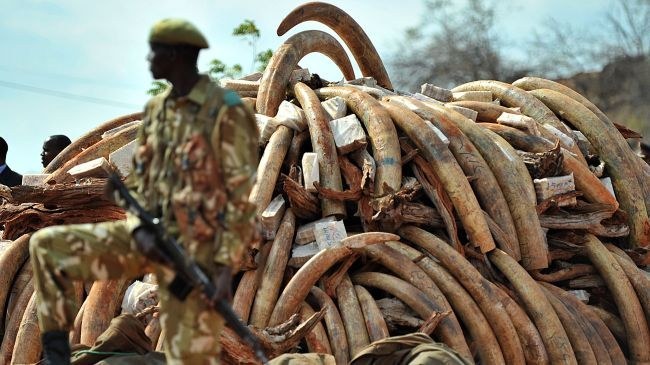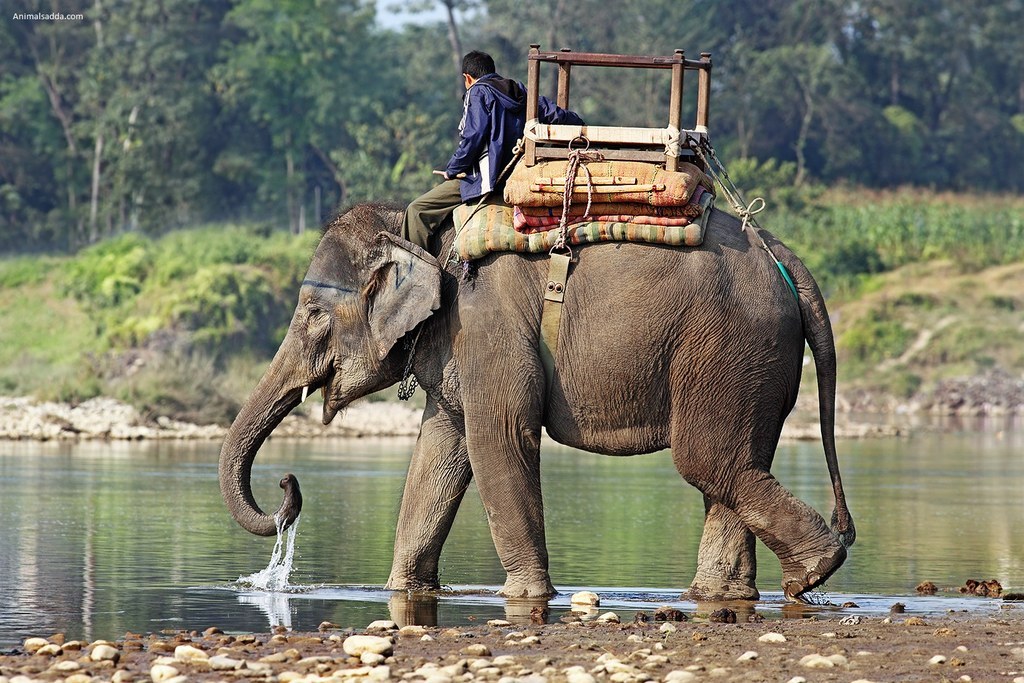
1. One elephant is killed every 15 minutes, meaning by 2025 the wild population could be gone.
Elephants reach sexual maturity at 11 years old, have a gestation period of 22 months, and reproduce slowly. The population is declining far faster than they can maintain it naturally.

2. Africa's elephant population has been declining at a rate of 2% annually.
In the 1970's, there were 1.3 million elephants living in Africa. The population dropped by more than half by 1995. Currently, there are an estimated 400,000 elephants dwelling in the wild.

3. Between 2002 and 2012, Africa's forest elephant population has declined by 62%.
In Africa, there are two sub-species of elephants: the savanna elephant, and the forest elephant. The forest elephant dwells primarily in Gabon, the Republic of Congo, and Cameroon, in regions rife with instability. In 2013, at least 26 forest elephants were slaughtered at the Dzanga Bai World Heritage Site in the Central African Republic.

4. The illegal ivory trade claims the lives of 36,000 elephants annually.
In 2013, 96 elephants were killed every single day for their tusks.

5. A living elephant is worth 76 times more alive than dead for its tusks.
The average of ivory yield on the tusks on a mature elephant is 5kg per tusk, or a total revenue of $21,000 in black market trade.
In contrast, the estimated ecotourism value of one elephant over its full lifespan (average 60-70 years), is $1,607,624.83, or $22,966 per year to travel companies, airlines, and local economies.

6. In Kenya, elephant wildlife tourism generates 12% of the nation's Gross Domestic Product, and creates over 300,000 jobs.

7. About 20% of the world's human population lives in or near the present range of the Asian elephant.
The Asian elephant, numbering 30,000-50,000 in the wild today, is threatened primarily by human-wildlife conflict and loss of habitat.

8. Elephants play an integral role in the environment.
They're known as "Nature's Gardeners," and an estimated 1/3 of Central Africa's forests rely on elephants to distribute their seeds.
They also help maintain and balance biodiversity in the forest and savanna landscapes of Africa.

9. Elephants share the same emotions and cognitive behavior as humans.
They feel joy, jealousy, and compassion, can be happy and sad, throw tantrums, and can be competitive. They can also become depressed, and are known to grieve when they lose ones they love.
The Story of Shirley
View this video on YouTube
From The Urban Elephant by Argo Films.
10. Elephants live in a matriarchal society.
In a complex system, older female elephants, the matriarchs, are responsible for teaching their young. Elephants have remarkable memories, so the knowledge of migratory routes and watering holes are passed down from generation to generation. As they are poached for their ivory, the mature matriarchs are the first to be killed, leaving the young to fend for themselves in an environment they aren't prepared to handle on their own.
19% of the orphans the David Sheldrick Wildlife Trust rescues are orphaned because their mothers have been the victims of poaching.

Wild.
View this video on YouTube
Short video by the David Sheldrick Wildlife Trust.
Interested in supporting elephant conservation?
Visit sites like the World Wildlife Fund, the David Sheldrick Wildlife Trust and their iWorry Campaign, or 96Elephants.org to support campaigns that focus on elephant conservation, poaching prevention, and educating local communities about the benefit of maintaining a harmonious relationship with these beautiful creatures.
*All facts thanks to the David Sheldrick Wildlife Trust, their iWorry Campaign, the US Fish & Wildlife Service African Elephant Conservation Fund, the World Wildlife Fund, and the International Elephant Foundation.



